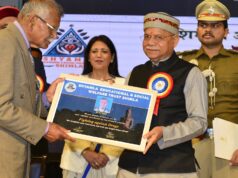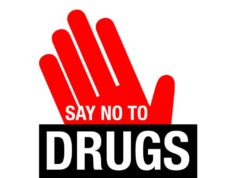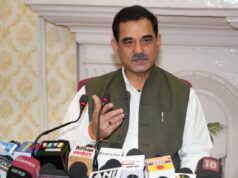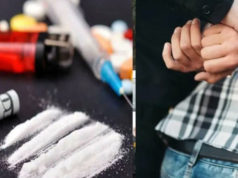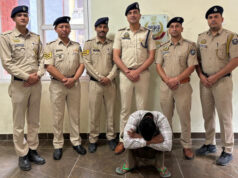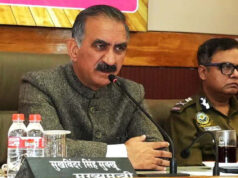Chandigarh: Underlining his government’s zero-tolerance policy towards drugs, Punjab Chief Minister Captain Amarinder Singh on Wednesday approved a Reward Policy to encourage information and inputs leading to the recovery of drugs under the NDPS Act.
The Chief Minister termed it an important step towards motivating people to play a proactive role in helping the government in cracking down on drug smugglers and traffickers.
The policy will recognise Government servants/informers/sources for their role in providing inputs leading to the recovery of a substantial quantity of drugs and in the successful implementation of various provisions of the Narcotic Drugs and Psychotropic Substances (NDPS) Act, 1985 and PIT NDPS Act, 1988, according to Punjab DGP, Dinkar Gupta.
The quantum of reward for successful investigation, prosecution, forfeiture of illegally acquired property, preventive detention and other significant anti-drug work shall be decided on a case-to-case basis.
The decision is in line with the suggestion mooted by the DGP for instituting such a policy during the February 23 meeting chaired by the Chief Minister to review the status of his government’s ‘War on Drugs.
Persons eligible for the reward under the policy would include informers whose information leads to seizure of narcotics drugs/ psychotropic substances/ controlled substance and forfeiture of illegally acquired property under Chapter V-A of NDPS Act, 1985. Another eligible category would comprise the officers/officials of State Government or Central Government such as Police, Prosecutors, Officers of enforcement agencies of Government of India, who make seizures of narcotics drugs/psychotropic substances/controlled substances or conduct successful investigation under the NDPS Act, 1985, or ensure successful prosecution or achieve successful forfeiture of illegally acquired property under Chapter V-A of NDPS Act, 1985 or achieve successful preventive detention under PIT NDPS Act, 1988 or any other achievement considered fit for grant of cash reward by ADGP/STF and DGP/Punjab, revealed Gupta.
Gupta clarified that Government officers/ officials would normally be eligible for 50 percent of the maximum reward. The rewards in excess of this limit may be considered only in cases where the government officer/official has exposed himself/herself to a great personal hazard or displayed exemplary courage, commendable initiative or resourcefulness of an extraordinary nature or where his/her personal efforts have been mainly responsible for the detection of case of seizure.
Further, Gupta said the reward is purely an ex-gratia payment and cannot be claimed as a matter of right and the decision of the Competent Authority to grant reward would be final. Also, the reward should not be sanctioned for the routine and normal nature of work and should be case-specific. For instance, the reward for informers should be based on specificity and accuracy of the information, risk and trouble undertaken apart from the nature of help rendered to law enforcement agencies while the reward for Government officers/ officials should be based on special efforts and special initiative displayed for the cultivation of sources and collection of actionable intelligence, surveillance resulting in successful seizure, conducting successful seizure, thorough investigation and flawless prosecution besides preventive detention.
The reward would be paid to the Government officers/officials and the informers at different stages. While in case of seizures, the Government officers/ officials would get the reward after receipt of Forensic Science Laboratory (FSL) report confirming presence of illicit drug. In case of investigation, the reward would follow after conviction whereas in case of prosecution, the officials would be rewarded after conviction. In case of illegally acquired property, the reward would accrue after successful forfeiture under section 68-I of NDPS Act, 1985 and in case of detention order, the officer/official would be rewarded after confirmation of detention order under section 9(f) of PIT NDPS Act, 1988. The informers would get the reward after receipt of FSL report confirming presence of illicit drug in case of seizures, while in case of illegally acquired property, they would be rewarded after successful forfeiture.
Outlining the procedure for claiming the reward, a spokesperson of the CM’s officer said that each District/ Unit/ Department would constitute a 3-member committee headed by the concerned CP/SSP/Head of Unit/Head of Office to examine cases based on the above guidelines and make recommendations to ADGP/STF for grant of reward. These recommendations would be scrutinized by a committee of officers at STF Headquarters who would further forward the case to ADGP/STF or DGP/Punjab (through ADGP/STF) for grant of reward. The ADGP/STF can sanction reward amount upto Rs. 1 lakh while the sum in excess of Rs. 1 lakh would be sanctioned by the DGP. The necessary budget provision for this purpose shall be made under the Object Head ‘Rewards’ to ADGP, Special Task Force, Punjab.
The rates of reward (Per Kg) in respect of substances seized under the provisions of Narcotic Drugs and Psychotropic Substances (NDPS) Act, 1985 would be Rs. 6000 in case of Opium, Rs. 20,000 for Morphine base and its salts, Rs. 1,20,000 for Heroin and its salts, Rs. 2,40,000 for Cocaine and its salts, Rs. 2000 for hashish, Rs. 10000 for hashish oil, Rs. 600 for Ganja, Rs. 2000 for Mandrax Tablets, Rs. 20000 for Amphetamine, its salts and preparations thereof, Rs. 20000 for Methamphetamine, its salts and preparations thereof, Rs. 15000/1000 tablets for Ecstasy or 3,4- Meththylene dioxy methamphetamine (MDMA), Rs. 30/Blot for Lysergic acid diethylamide (LSD), Rs. 240 (20% of the present street price) for Poppy Straw, Rs. 280 for Ephedrine, its salts and preparations thereof, Rs. 480 for Pseudo-ephedrine, its salts and preparations thereof, Rs. 10 per liter for Acetic Anhydride, Rs. 700 for Ketamine, its salts and preparations thereof, Rs. 45 for Anthranillic Acid, Rs. 80 for N-acetyl Anthranillic Acid, Rs. 0.53 per tablet of 5mg for Diazepam and its preparations, Rs. 0.20 per tablet of 5Mg for Alprazolam and its preparations, Rs. 0.296 per tablet of 5Mg for Lorezepam and its preparations, Rs. 0.52 per tablet of 5 Mg for Alprax and its preparations, Rs. 25000 for Buprenorphine/ Tidigesic and its preparations, Rs. 2880 for Dextropropoxyphene, its salts and preparations thereof and Rs. Rs.1.044/- per vial of 30mg for Fortwin and its preparations, added the spokesperson.


